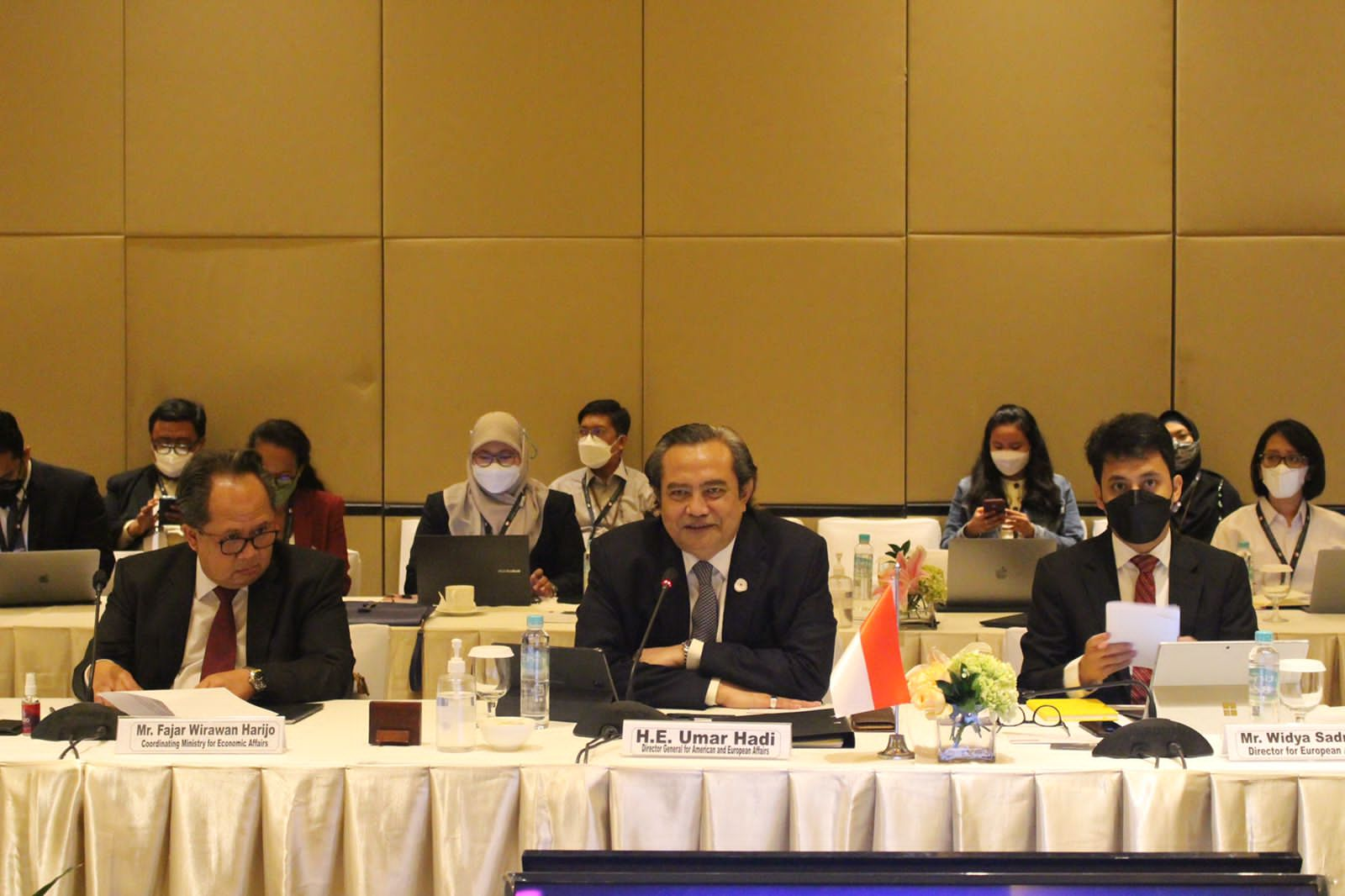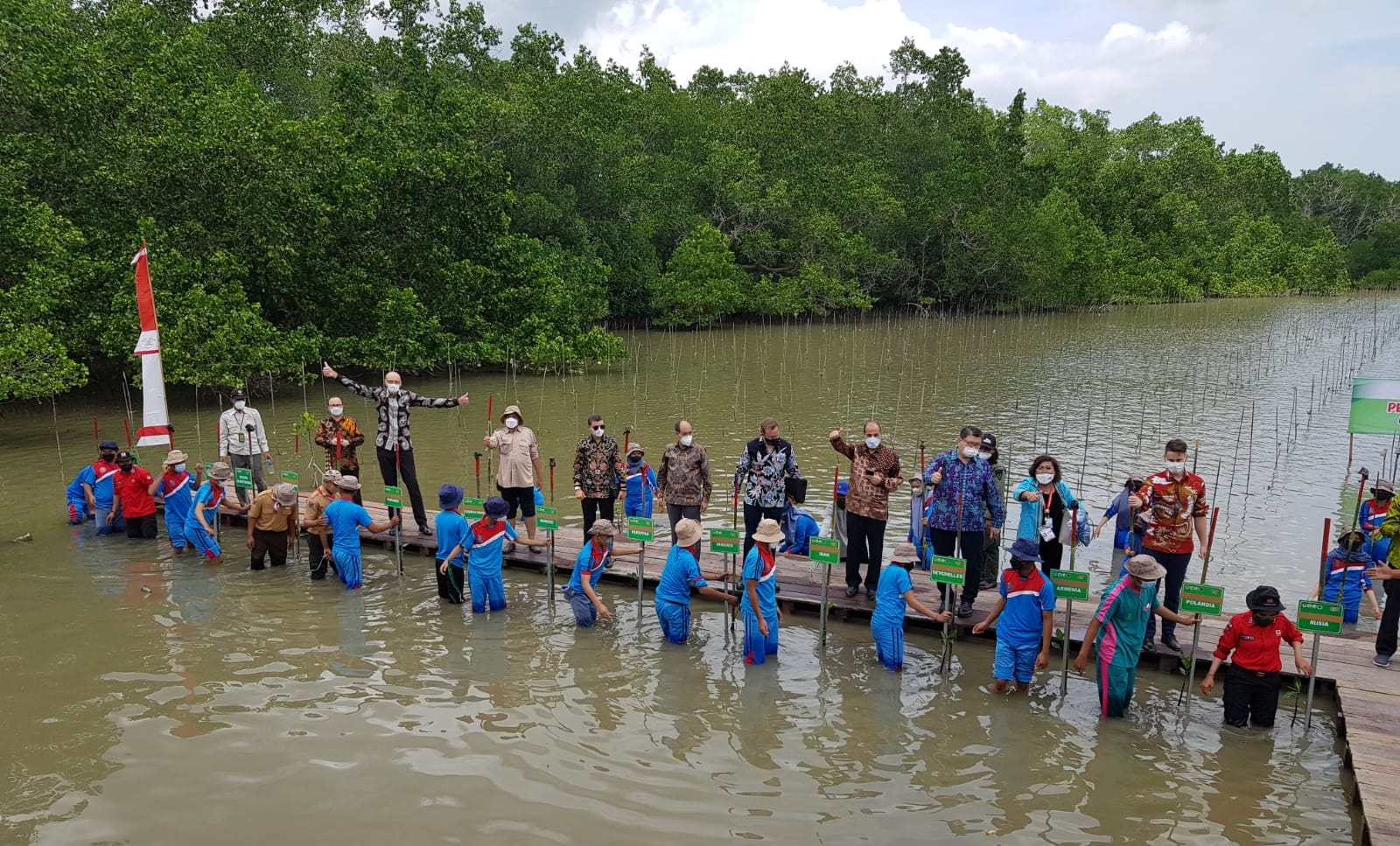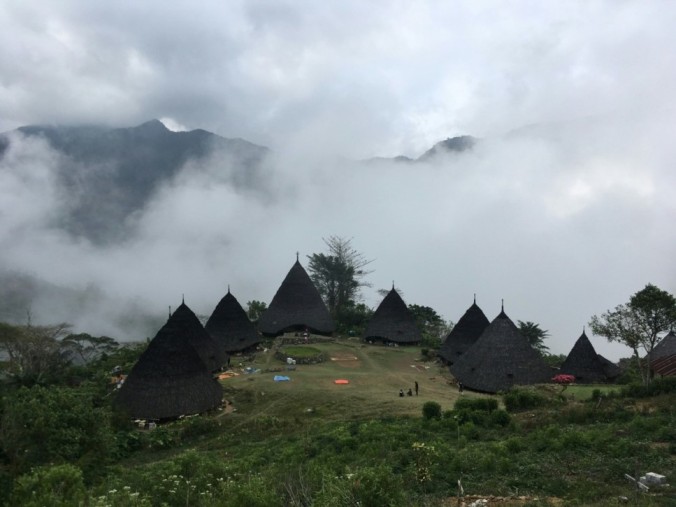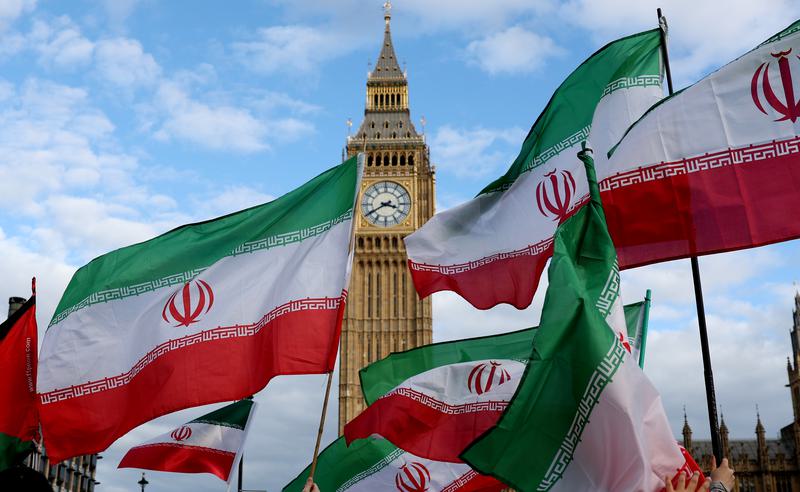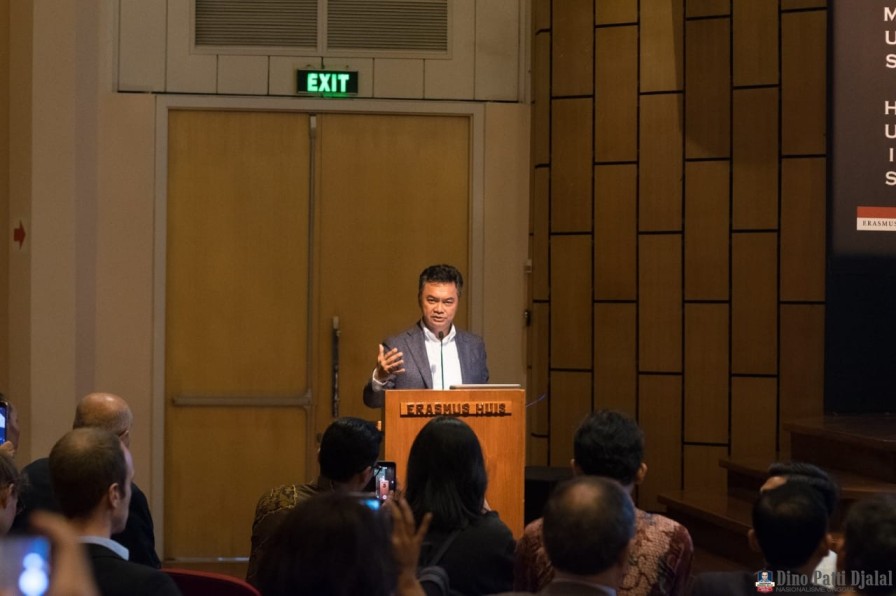Jakarta (Indonesia Window) - Learning Indonesian for foreign speakers is one of Indonesia's cultural diplomacies abroad.
In a statement received here on Monday, a Counsellor at the Indonesian Embassy in London, Hartyo Harkomoyo, said in order to make the diplomacy be implemented properly, the Indonesian Embassy has carried out a research.
In September 2020, the Indonesian Embassy in London conducted a survey on prospective Indonesian learners in Great Britain and the Republic of Ireland, in collaboration with Dorothy Ferari, a researcher from the University of London.
The survey involved 159 respondents, who mostly were adults, consisting of 36 percent between 31-40 years old and 30 percent aged 21-30 years old, while 74 percent of them were workers.
Of the 159 people, 85 percent have visited Indonesia, and more than 59 percent have lived in Indonesia or visited Indonesia regularly to see family or for vacations.
Therefore, those two reasons became their main goals of studying Indonesian.
Meanwhile, only 37 percent of respondents were aware of Indonesian for foreign speakers programs in Britain and Ireland.
The two most well-known organizers of the program are the Indonesian Embassy in London and the School of Oriental and African Studies (SOAS) at the University of London.
As many as 80 percent of respondents stated that they were not currently studying Indonesian for several reasons.
Twenty-nine percent of the respondents stated that the course overlapped with their schedule, 27 percent said the course was costly, and 26 percent of the respondents stated that there was no Indonesian learning course in their cities.
Most of the Indonesian learning courses are held in London, namely at the Indonesian Embassy, the University of London, the Royal Botanical Garden, Kew, as well as at the Foreign Commonwealth and Development Office (FCDO).
In addition, the Indonesian Embassy in London has also organized extracurricular classes at two schools in London, namely Whitefield School and St. Matthews C.E Primary School.
Earlier, the Indonesian Embassy also offered free Indonesian learning classes at the University of Nottingham, in Bristol and York.
Based on the survey, the majority of respondents (66 percent) stated that they wanted to spend at least 1.5 hours per week to participate in the class.
Monday to Thursday at between 18.00 and 21.00 hours were chosen as the most ideal time to take the class.
The Indonesian Embassy also conducted interviews with some respondents, at aged between five and 60 years.
The interviews showed that British children and adolescents were interested in joining Indonesian learning classes.
In addition, the interviewees said the importance of the course syllabus which emphasizes speaking skills.
They said they had access to practice reading and listening skills using materials provided in a website, but did not have many opportunities to practice speaking.
The interview also showed a high interest in Indonesian learning for foreigners program.
One of the interviewees said Indonesian is a very interesting language.
"In principle, Indonesian is easy to learn. Therefore, I think if there are more promotions about Indonesian language courses available, people will be interested in learning it,” a respondent remarked.
There was also a respondent said, “Indonesia is now being eyed by other countries. Now, more people know about Indonesia, so I think it would be great if the number of Indonesian language courses increase, not just in London."
Reporting by Indonesia Window

